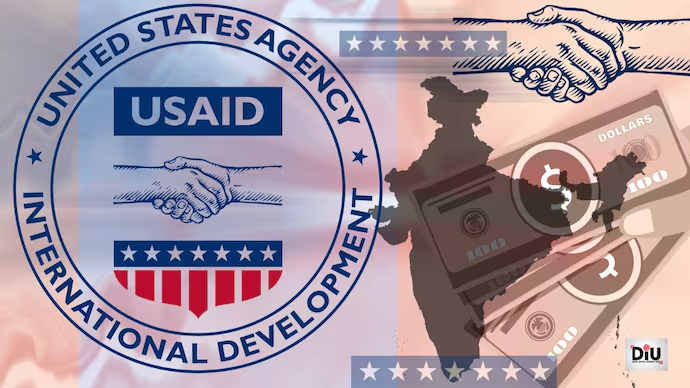In a startling revelation, former U.S. President Donald Trump has alleged that the United States Agency for International Development (USAID) allocated $21 million to influence voter turnout in India, specifically targeting Prime Minister Narendra Modi’s administration. He further claimed that an additional $29 million was directed towards “strengthening the political landscape in Bangladesh.”
Big: Trump once again confirms that USAID was used against PM Modi.
“$21 million going to my friend PM Modi, in India in the name of voter turnout. $29 million to strengthen the political landscape in Bangladesh.”
(Note for low-IQ idiots: He was saying it in a satirical way.) pic.twitter.com/xRXmMBDAjN
— Mr Sinha (@MrSinha_) February 22, 2025
These claims have sparked a political firestorm, raising concerns over potential foreign interference in the electoral processes of two major South Asian democracies. Trump’s statement has fueled debates on how U.S. foreign aid is utilized and whether such funds are being misused for political leverage.
India’s Response to USAID
The Indian government has expressed serious concerns regarding these allegations. Foreign Ministry spokesperson Randhir Jaiswal described the claims as “deeply troubling” and confirmed that the government is investigating the matter. The possibility of foreign funding influencing India’s democratic processes has raised alarms within the ruling Bharatiya Janata Party (BJP), as well as among opposition parties.
However, reports from The Indian Express suggest that the $21 million in question may have actually been allocated to Bangladesh, not India, indicating a potential misrepresentation in the initial claims. This discrepancy adds another layer of complexity to an already contentious issue.
USAID Role and the DOGE Report
The controversy stems from a report released by the Department of Government Efficiency (DOGE), led by tech mogul Elon Musk. The report highlights various USAID expenditures. This includes the contentious $21 million allegedly used for voter engagement in India. Trump, referencing the report, criticized the spending and questioned whether it was an attempt to influence electoral outcomes in India and Bangladesh.
The claims have led to increased scrutiny of USAID’s activities in South Asia. USAID’s official mandate is to support democracy and governance initiatives. It is argued that such interventions could undermine national sovereignty and disrupt local political dynamics.
Political Fallout in India and Bangladesh
These allegations have triggered heated debates in India. The BJP strongly condemns any foreign attempts to meddle in India’s democratic process, while opposition parties, demand greater transparency regarding foreign funding.
In Bangladesh, USAID’s $29 million allocation to “strengthen the political landscape” has intensified political disputes as elections approach. The ruling Awami League and opposition parties now clash over whether foreign influence dictates the country’s electoral framework.
Questions Over Foreign Aid and National Sovereignty
Trump’s allegations have once again put the spotlight on how U.S. foreign aid is distributed. The question is whether it is being used for political manipulation rather than developmental assistance. If proven true, these claims could have significant diplomatic implications, particularly for U.S.-India relations. They have seen increased cooperation in recent years.
As investigations continue, global observers are closely watching the developments. The outcome of these inquiries could redefine discussions on foreign aid transparency and the ethical limits of international political engagement.


